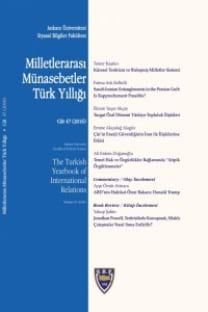Rule of Law and Constitutional Democracy
Rule of Law and Constitutional Democracy
The rule of law is a traditional concept much used but little examined in its current magnitude. It is a cornerstone of contemporary constitutional democracy as underscored by its paramount role in cementing all of the transitions from authoritarian or totalitarian regimes to constitutional democracy. Moreover, rule of law is one of the three essential elements of modern constitutionalism with protection of human rights and limitation/separation of government powers. However it is not clear what precise characteristics the rule of law must possess to ensure a working constitutional democracy. Thus there is no consensus on what rule of law stands for, even if it is fairly clear what it stands against. In order to determine how the rule of law might contribute to establishing the legitimacy of constitutional democracy in a contemporary pluralistic society, I shall first focus on the essential jurisprudential characteristics of the conception of rule of law in three different legal traditions German, French and Anglo-American and then on the contrast between procedural and substantive safeguards. Secondly I will try to point out the apparent convergence which has occurred between these different traditions. Finally I will describe how rule of law could reconcile the need for predictability with that for fairness in its “globalized” formula, which has been recently shaped by sovranational hard law and soft law rules with particular reference to the Venice Commission activity . The idea of the rule of law as the foundation of modern states and civilizations has recently become even more talismanic than that of democracy, but what does it actually consist of? So far, on one hand scholars have ascertained that, in the broadest terms, the rule of law requires that the state only subject the citizenry to publicly promulgated laws, that the state’s legislative function be separate from the adjudicative function and that no one within the polity be above the law. Moreover, that rule of law is one of the three essential elements of modern constitutionalism with protection of human rights and limitation/separation of government powers. We’ve also realized that in absence of the rule of law constitutional democracy would be impossible and that the rule of law is a cornerstone of contemporary constitutional democracy as underscored by its paramount role in cementing all of the transitions from authoritarian or illiberal regimes to constitutional democracy1. Still, on the other hand we’ve found a paradox at the heart of the rule of law, since that ideal demands certainty and condemns ambiguity in the law, but the ideal itself appears unclear and somehow uncertain. As a matter of fact “there is no consensus on what the rule of law stands for even if it’s fairly clear what it stands against”2. Like the concepts of equality or liberty the descriptive meaning of the rule of law is dependent on the prescriptive meaning one ascribes to it. Consistent with this, the rule of law has come to mean different things within different legal traditions, even within a single tradition it is often not clear whether the rule of law ought to be largely procedural or substantive and a few constitutional texts make express reference to the concept German, Turkish, Spanish and some of the new East-European constitutions . Then, in order to determine whether and how the rule of law might contribute to establish the legitimacy of constitutional democracy in the contemporary pluralistic society it is necessary to deal with the following issues. Firstly we have to observe the connection between rule of law and constitutional democracy and modern concept of the rule of law in three different legal traditions. Secondly we will explore the progressive convergence which has occurred between these notions during the 20th century due to the increasing internationalization and transnationalizations of the rule of law. Thirdly we will evaluate the usefulness of addressing the rule of law as a practical legal concept still able to guide and to constrain the exercise of democratic power.
Keywords:
Rule of Law, Constitutional Democracy,
- ISSN: 0544-1943
- Yayın Aralığı: 1
- Başlangıç: 1960
- Yayıncı: Ankara Üniversitesi Siyasal Bilgiler Fakültesi Uluslararası İlişkiler Bölümü
